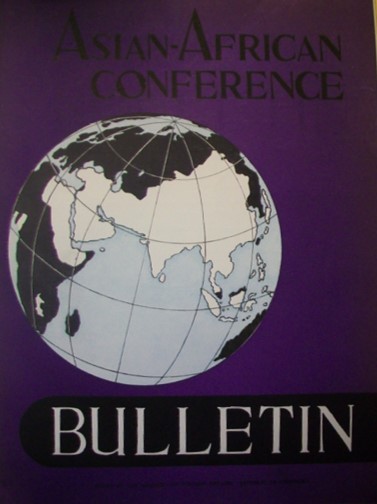by David Webster
This blog is cross-posted on David Webster’s website.
The Asian-African Conference Bulletin, published daily during the African-Asian conference at Bandung in April 1955, 65 years ago, is a significant and unused source in international history. In its pages, as much as in the conference hall around it, was born the idea of Asian-African solidarity and non-alignment. The Bulletin and other sources from the conference are now digitized as an e-dossier at historybeyondborders.ca (a new web site to which CNNH members and readers are invited to contribute).
Continue reading



